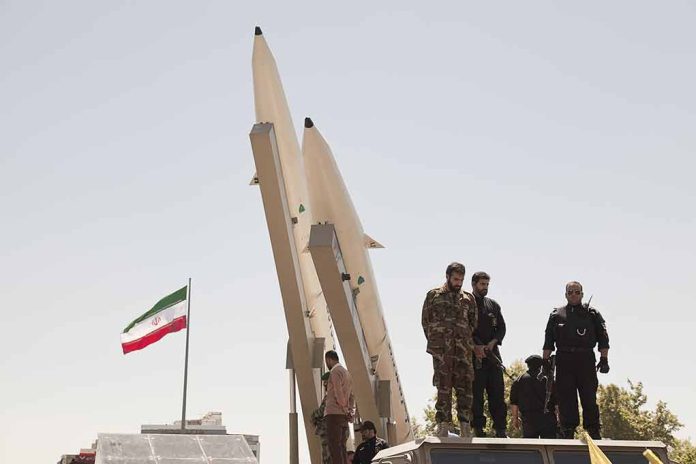
Yemen has allegedly escalated its military conflict by launching a hypersonic ballistic missile targeting Israel, with the missile reportedly landing near Tel Aviv.
At a Glance
- Yemen’s Ansar Allah (Houthis) launched a missile at central Israel, hitting Tel Aviv and causing fires and air raid sirens.
- The missile was claimed to be hypersonic by the Houthis, but Israel disputed this, stating it was not hypersonic.
- The missile flew 2,000km from Yemen to Israel in 11 minutes.
- Nine people in Israel suffered minor injuries from the attack.
- The Houthis have been attacking ships linked to Israel since November in solidarity with Palestinians.
Escalating Regional Strife
Yemen’s Ansar Allah faction, commonly known as the Houthis, launched a ballistic missile at central Israel on Sunday morning. The missile reportedly landed near Tel Aviv, causing fires and triggering air raid sirens across the region. This event marks a significant escalation in the longstanding Middle Eastern conflict. Not only does it reflect the growing tensions between the involved parties, but it also underlines the increasing sophistication of the Houthis’ missile technology.
The Houthis claimed the missile to be hypersonic, capable of reaching Israel from Yemen in an unprecedented eleven minutes. Israeli officials, however, refuted this claim, pointing out that the missile does not meet the technical criteria for hypersonic weaponry. Despite the dispute over the missile’s classification, its impact was tangible; nine individuals in Israel sustained minor injuries.
Significant Repercussions
The missile managed to fly 2,000 kilometers, landing near Tel Aviv, thus raising serious questions about the efficacy of Israel’s air defense system. Israeli Prime Minister Benjamin Netanyahu has vowed retaliation against the perpetrators, signaling potential ramifications not just for Yemen but possibly also for its allies.
“Whoever needs a reminder of that is invited to visit Hodeidah port,” said Netanyahu, likely referring to the persistent threats and warnings from the Houthis.
In an alarming development, the Houthis have launched over 220 missiles and drones targeting Israel in the past eleven months, with the recent attack being the furthest missile incursion into Israeli territory to date. The Houthis’ missile design closely mirrors Iran’s medium-range ballistic missiles, heightening concerns about the involvement of Iran or other regional powers in this latest escalation.
Yemen strikes Tel Aviv
The Yemeni Armed Forces declared that they launched a new hypersonic ballistic missile named Palestine 2 over 2,000 kilometres in the air, striking a target in Tel Aviv.
This is the first time a strike on Israel has been carried out with a hypersonic… pic.twitter.com/6477E7LuV2
— MintPress News (@MintPressNews) September 16, 2024
Geopolitical Consequences
The Houthis reportedly launched the missile from over 1,200 miles away, adding yet another layer of complexity to the already volatile situation in the Middle East. This recent attack could be seen as Yemen’s response to Israel’s earlier strikes on Hodeidah, highlighting the escalating tit-for-tat aggression between the two. As Yahya Saree, a Houthis spokesperson, warned of future strikes, the region may brace itself for more turbulence.
“The IDF’s missile defense system didn’t intercept the missile before it entered Israel’s airspace and said the missile ‘exploded’ in the air, scattering debris in open areas,” stated Yahya Saree.
As this incident unfolds, experts continue to scrutinize its long-term geopolitical consequences, particularly concerning U.S.-Middle East relations and the broader international community’s response to these increasing hostilities.













